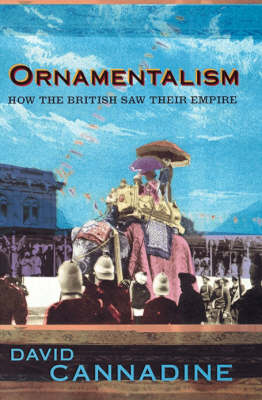For much of the modern era, the British Empire was the largest and greatest in the world, on which, it was truly observed, the sun never set. It encompassed almost every variant of human existence, and for three centuries it shaped the political, social and economic life of much of the globe. The origins of the British Empire, and the reasons for its collapse in the mid-20th century, have been extensively studied by historians. But very little attention has been paid to how the Empire was actually "run". How, during the heyday years of its stable existence, did its rulers understand their task? And what, more generally, did Britons think their Empire "looked like"? In this entertaining and original book, David Cannadine investigates the ideologies and social attitudes at the heart of the Empire. One of them was, undoubtedly, race. But even more pervasive was class - a traditional vision of hierarchy and subordination, derived from the sense the British had of their own society, which they exported and analogized to the ends of the earth and back again. This was how the British made, ran and visualized their Empire.
And this in turn helps us to understand many of its seemingly baffling oddities, such as the ostentatiously elaborated monarchy and the exceptionally complex honours system, both of which the British continue to live with, long after most other nations who were once part of the Empire have given them up. "Ornamentalism" is at once a vividly evocative account of a vanished era, a major reassesment of Britain and its imperial past, and a trenchant and disturbing analysis of what it means to be a post-imperial nation today.
- ISBN10 0713995068
- ISBN13 9780713995060
- Publish Date 26 April 2001
- Publish Status Unknown
- Out of Print 7 August 2002
- Publish Country GB
- Publisher Penguin Books Ltd
- Imprint Allen Lane
- Format Hardcover
- Pages 288
- Language English
